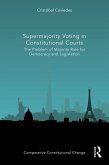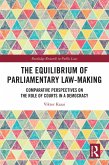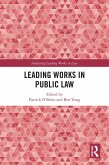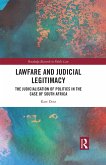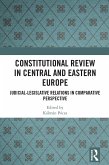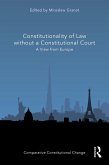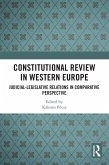Dieser Download kann aus rechtlichen Gründen nur mit Rechnungsadresse in A, B, BG, CY, CZ, D, DK, EW, E, FIN, F, GR, HR, H, IRL, I, LT, L, LR, M, NL, PL, P, R, S, SLO, SK ausgeliefert werden.
Yaniv Roznai, Reichman University, Israel
'In this insightful book, Cristóbal Caviedes fills a major gap in scholarship on institutional design and constitutional review. Identifying the importance and neglect of judicial decision procedures, he presents a rigorously argued case for supermajority voting rules on constitutional courts. A tour de force.'
Stephen Gardbaum, UCLA School of Law
'An indispensable book for anyone concerned with the politization of courts and the legitimacy of their decisions.'
Francisco J Urbina, University of Notre Dame



